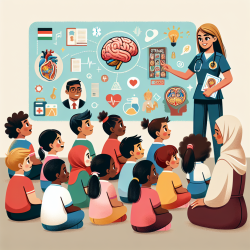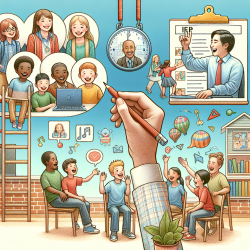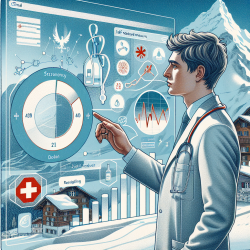As a speech-language pathologist, understanding the broader health education landscape can significantly enhance our practice. One such valuable study is the "Effects of school-based intervention by emergency medical technicians on students and their parents: a community-based prospective study of the Akashi project" (Tomari et al., 2017). This research demonstrates how emergency medical technicians (EMTs) can effectively disseminate critical health information, such as stroke awareness, to children and their parents.
The Akashi project, conducted in Akashi, Japan, involved EMTs teaching elementary school children (aged 9-10) about stroke symptoms and risk factors. The children then shared this information with their parents. The study found that both children and parents showed a significant increase in stroke knowledge immediately after the lesson and maintained this knowledge even three months later.
Here are some key findings from the study:
- Children's and parents' understanding of stroke symptoms and risk factors improved significantly immediately and three months after the lesson (p<0.01).
- The knowledge of the FAST mnemonic (Face, Arm, Speech, Time) improved significantly in both groups (p<0.001).
- 83% of children and 87% of parents knew to call an ambulance upon recognizing stroke symptoms before the lesson, which increased to 89% and 93% respectively three months post-lesson.
These findings suggest that school-based interventions led by EMTs can effectively increase stroke awareness, potentially leading to quicker response times in real-life situations. For practitioners in speech-language pathology, this highlights the importance of collaborative, community-based health education initiatives.
Implementing similar programs in your practice or encouraging schools to adopt such interventions could be highly beneficial. Here are some actionable steps:
- Collaborate with local EMTs or healthcare providers to develop educational materials tailored to children.
- Organize workshops or seminars in schools to educate children about stroke symptoms and the importance of quick response.
- Encourage children to discuss what they've learned with their parents, reinforcing the information at home.
- Use engaging methods such as animated cartoons or comics to make the learning process enjoyable and memorable for children.
By integrating these strategies, you can play a crucial role in enhancing community health awareness and potentially saving lives through early stroke intervention.
To read the original research paper, please follow this link: Effects of school-based intervention by emergency medical technicians on students and their parents: a community-based prospective study of the Akashi project.










